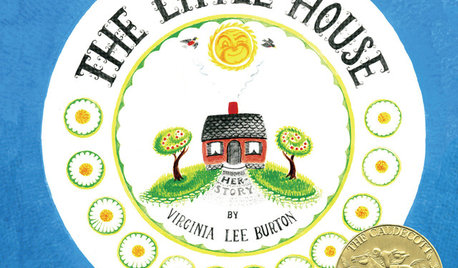WHO calls Roundup a probable carcinogen
Peter (6b SE NY)
9 years ago
Featured Answer
Comments (42)
tommyr_gw Zone 6
9 years agolucillle
9 years agoRelated Discussions
Monsanto's Roundup Triggers Over 40 Plant Diseases and.......
Comments (48)http://www.forbes.com/sites/timworstall/2012/09/20/monsantos-gm-corn-and-cancer-in-rats-real-scientists-deeply-unimpressed-politics-not-science-perhaps/ "Their claim is that the rats fed GM corn and Roundup got more such tumours earlier than the control group. The criticism of this finding is that the control group was simply too small to allow such an observation to be made with any certainty. And they have not conducted, or at least not presented, the standard statistical tests which would allow they or us to determine whether the results were the outcome of pure blind chance." http://arstechnica.com/science/2012/09/anti-gmo-researchers-used-science-publication-to-manipulate-the-press/ "Any journalist that wanted to receive an advance copy was required to sign a non-disclosure agreement before receiving one. That agreement prohibited the outlet from sharing the results with any outside experts before the embargo lifted. In other words, if a press outlet wanted to be one of the first to cover the story, it would have to run the story without having any experts sanity check the paper." "The embargo lifted during a live press conference from the researchers, hosted in London in cooperation with the Sustainable Food Trust. The SFT conveniently had a press release prepared; a release claiming that the research was "supported by independent research organization, CRIIGEN." However, this neglected to note that the paper's lead author, Eric Seralini, is on the CRIIGEN board." Conflict of interest, and keeping the newspapers from doing any fact checking before publication ... that's not accepted protocol. https://embargowatch.wordpress.com/2012/09/21/stenographers-anyone-gmo-rat-study-co-sponsor-engineered-embargo-to-prevent-scrutiny/ " One of the main reasons for embargoes �" if you take many journals at their word �" is to give reporters more time to write better stories. Part of how you do that is talking to outside experts. And scientists �" ones interested in science, anyway, not those interested in spin and political points �" should welcome that kind of scrutiny."...See MoreRoundup got sprayed on my organic garden.. need advice
Comments (54)janice, this is an old thread, and you may well find some good info on it, but since you need help fast I'd suggest you start a brand new thread and post your photos and your text above on it. That will get people's attention and hopefully get you some help fast. For the dog I'd suggest calling your vet asap. So sorry this has happened! And I hope that you'll get some good answers soon from folks who know about these things....See MoreWHO called glyphosate a "probable carcinogen"
Comments (29)What I've been saying all along is that I believe the best way to test the relative level of those risks is to compare the overall health of people that engage in those risks to those that do not. This is how the risk of smoking was most convincingly established. If OP's create significant risks to human health, how on earth can the people who actually experience high exposures to them on a regular basis completely escape the consequences- are you suggesting that dosage is not relevant either specifically or cumulatively? That makes absolutely no sense to me. Epidemiological research doesn't win any one Nobel prizes, it is not terribly creative stuff for a scientist, but in the end, it is often the best way to sort the wheat from the chafe when trying to determine actual levels of risk of any substance in the environment to human health. In the case of pesticides, such evidence is particularly accurate and useful because we have a very distinct segment of the population with uniquely high exposures to them. One can't sort out which pesticides do what but if collectively no great harm is being done then none of the various exposures in themselves can be very significant. At the time of the last study I posted, the farmers surveyed were using a lot of OP chemicals because much of the banning hadn't begun. So both recent accidents and long term health consequences are in the data. Please address any flaws you find in the logic of what I've posted here before posting more research of potential links to cancer or whatever. They never seem to offer an assessment of the actual level of risk, so they are virtually worthless, except as suggestions for epidemiological research to realistically verify the suggestd links ....See MoreDoes anyone use Roundup?
Comments (18)Why contribute to the financial support of a product that is used in larger applications? I'm not contributing any financial support. I buy it to use it.It serves a need, and I pay money to serve that need. I buy a bag or two of concrete too, and look at what our cities do with concrete. I buy some gallons of gasoline, and look at how the petrochemical companies contribute to pollution. Horrors. Am I contributing to those products as well? If you spray it in a sidewalk crack...and a pet or a bird or a bug or a worm gets in that crack...what happens? Uh, I don't know. I don't much care about the bug or worm. A pet getting into a sidewalk crack? Get real. My dog sure wouldn't fit. In any case, probably nothing. If a thousand homeowners in a community spray it in their sidewalk cracks on a Saturday morning...and a big rain shower hits Saturday afternoon...and all that poison is washed from the sidewalks past the curbs and down the streets into the gutters...and it all flows into a local retention pond where Canadian Geese drink...or into a lake that serves as a municipal water source...or into a stream where people fish...what happens? Actually, probably nothing. Have we seen any major bird kills or fish kills that were found or even suspected to be caused by Roundup? You're reaching, and possibly just making stuff up, like using the word "poison" in the first place. No one else is using that word. Actually, it doesn't take 15 seconds to stoop down and remove a weed from a crack. You pull out the foliage, and the root stays there, and grows again, and expands the crack. It would take a lot longer if I had to stoop down with a knife and chisel. I'd probably cut myself and scrape my knee and come away with tetanus, no? So much for risks. Are we saving lives or feeding starving people with the Roundup that we use on our residential properties? ... But how is Roundup in a sidewalk crack worth the risks? Good heavens. Are we saving lives or feeding starving people with the truckloads of nitrates we dump on our lawns (which get washed into the aquifer and do damage there, as well as pose some health risks)? Are we saving lives or feeding starving people with our lawnmowers, trimming our lawns to look like golf courses? Are we saving lives or feeding starving people by planting lawns in the first place? Or even planting canteloupes? Geez, I could be planting some source of protein instead! Now you're really reaching. Roundup is worth the risk because, quite frankly, the risk appears to be quite small. I want to be responsible about the environment, but we're not doing anyone any favors by being pseudo-responsible. That's what this argument is about. It's about pretending to be sincerely responsible. I think it is smart to consider glyphosates as a possible low-level (class 2b carcinogen) hazard, and to use them with some care, but it makes no sense, nor does anyone a lot of good, to use glyphosates to distract us from more serious and recognized hazards. Oh, let me add to miradus01, who may have departed, but who said ... Why have we discontinued every single chemical that we have ever developed for use in agriculture? Because time after time they were all shown to be harmful. That's positively nuts. Most of what we apply to our crops has never been shown to be harmful. Our phosphate supplements? Our nitrogen supplements? We've stopped using those because they produced "horrific birth defects" and cancer? Really? Sure, there have been some supplements and insecticides that were determined to be harmful, and we fortunately stopped using them. But this comment doesn't address health threats. Rather it addresses the threat posed by that scary word "chemical". If you roll the "ch" it sounds even scarier. I don't think the Texas Gardening forum is a particularly good place to debate Roundup, and the alleged dishonesty of the US government. So I too will conclude. Apologies to the TG readership who had to endure this....See MorePeter (6b SE NY)
9 years agoPeter (6b SE NY)
9 years agonaturegirl_2007 5B SW Michigan
9 years agojnjfarm_gw
9 years agoMark
9 years agoPeter (6b SE NY)
9 years agodbarron
9 years agoMark
9 years agoMark
9 years agoMark
9 years agoPeter (6b SE NY)
9 years agolast modified: 9 years agocleangeek
9 years agolast modified: 9 years agojnjfarm_gw
9 years agocleangeek
9 years agonancyjane_gardener
9 years agowayne_5 zone 6a Central Indiana
9 years agoPeter (6b SE NY)
9 years agowayne_5 zone 6a Central Indiana
9 years agoPeter (6b SE NY)
9 years agoglib
9 years agoHarry Samuels
9 years agotheforgottenone1013 (SE MI zone 5b/6a)
9 years agolast modified: 9 years agoHarry Samuels
9 years agocooperdr_gw
9 years agotheforgottenone1013 (SE MI zone 5b/6a)
9 years agolast modified: 9 years agoHarry Samuels
9 years agoglib
9 years agoglib
9 years agowayne_5 zone 6a Central Indiana
9 years agoglib
9 years agowayne_5 zone 6a Central Indiana
9 years agolast modified: 9 years agoMiss_Moose (Winnipeg, Canda. Zone 2)
9 years agonancyjane_gardener
9 years agonaturegirl_2007 5B SW Michigan
9 years ago
Related Stories

PETSHouzz Call: Send in the Design Cats
Post your best photo of your cat at home, in the garden or with you in your studio. It could be published in a featured ideabook
Full Story
PETSHouzz Call: Looking for Dogs in Design
Share a Pic of Your Pet, and He or She Could Star on Our Homepage
Full Story
Gnomes Carve Out Life in Houzz Users' Gardens
Guarding the landscape or just supplying smiles, gnomes have won the hearts of Houzzers across the country. Here's a roundup
Full Story
CITY GUIDESTravel Guide: Kyoto, Japan, for Design Lovers
Experience ancient traditions and modern expressions in this design-minded roundup of sights, hotels, shops and restaurants
Full Story
DREAM SPACES25 Dream Homes to Satisfy Your Soul
Whether a grand mansion is your vision or a big-sky cabin calls to your heart, these dream homes can spark your imagination
Full Story
HEALTHY HOMEDetox Your Kitchen for the Healthiest Cooking
Maybe you buy organic or even grow your own. But if your kitchen is toxic, you're only halfway to healthy
Full Story
LIFEHard Winter? 9 Ways to Battle Cabin Fever
We know a lot of you are trapped where it just won’t stop snowing. Here are some ways to survive
Full Story
BOOKS11 Great Children’s Books About Home (and 2 Honorable Mentions)
Homes come in many different shapes and sizes, and these kids’ books highlight the tallest, the smallest, the oldest and the silliest
Full Story
BATHROOM DESIGN18 Sumptuous Vanities for Singular Bathrooms
Uncommonly beautiful or dazzlingly detailed, these dream vanities bring a rarefied air to bathrooms
Full Story
DECORATING GUIDES10 Tree-Hugging Interiors That Work Around Nature
Bursting up through the floor, planted in an indoor patio or potted in any room you choose, trees bring an elegance that's organic
Full Story




Peter (6b SE NY)Original Author